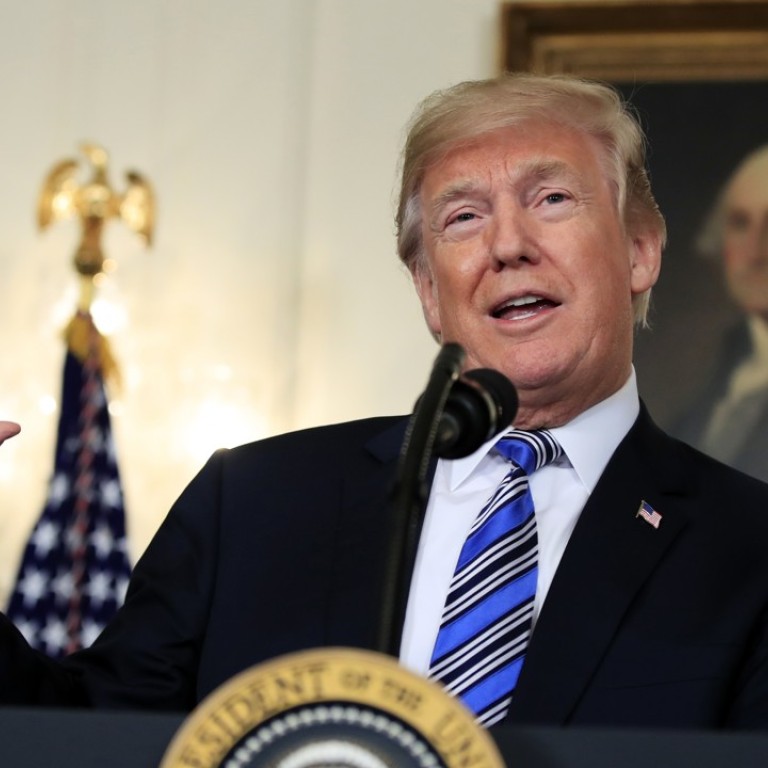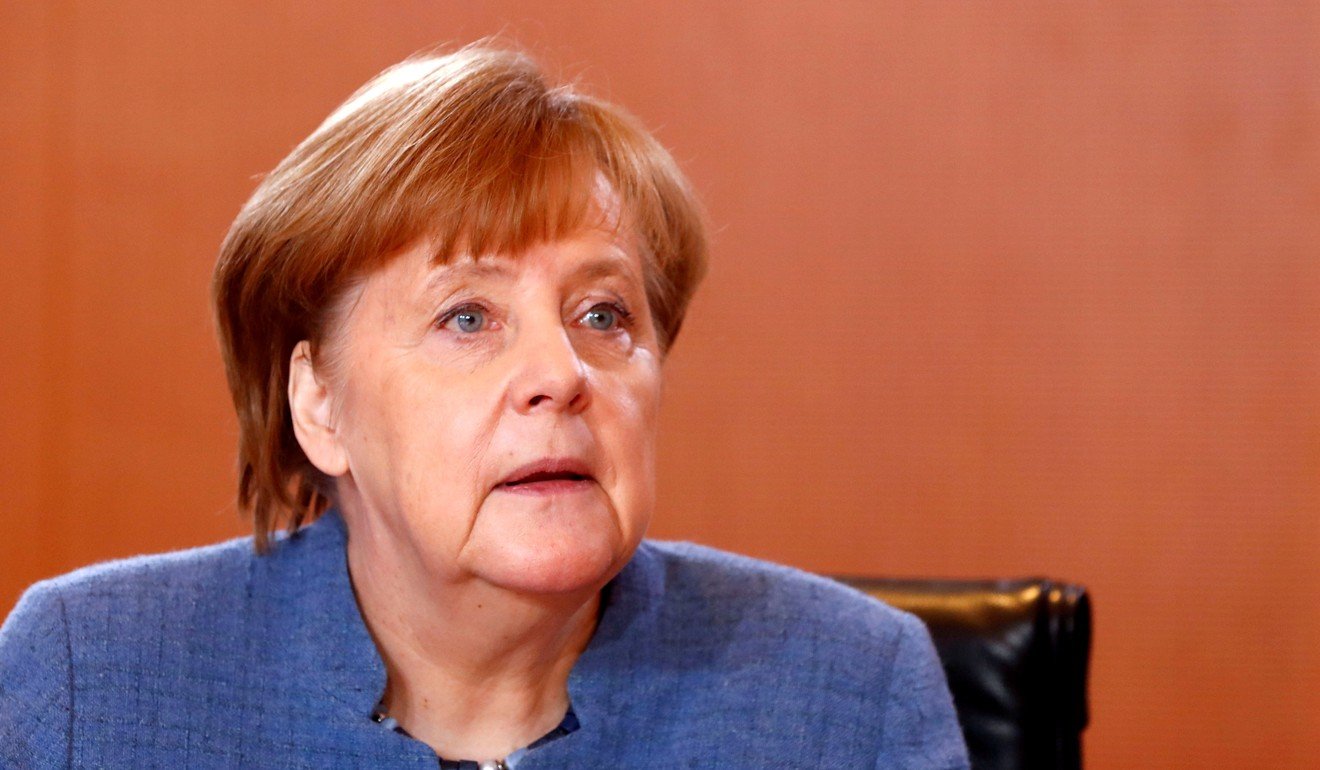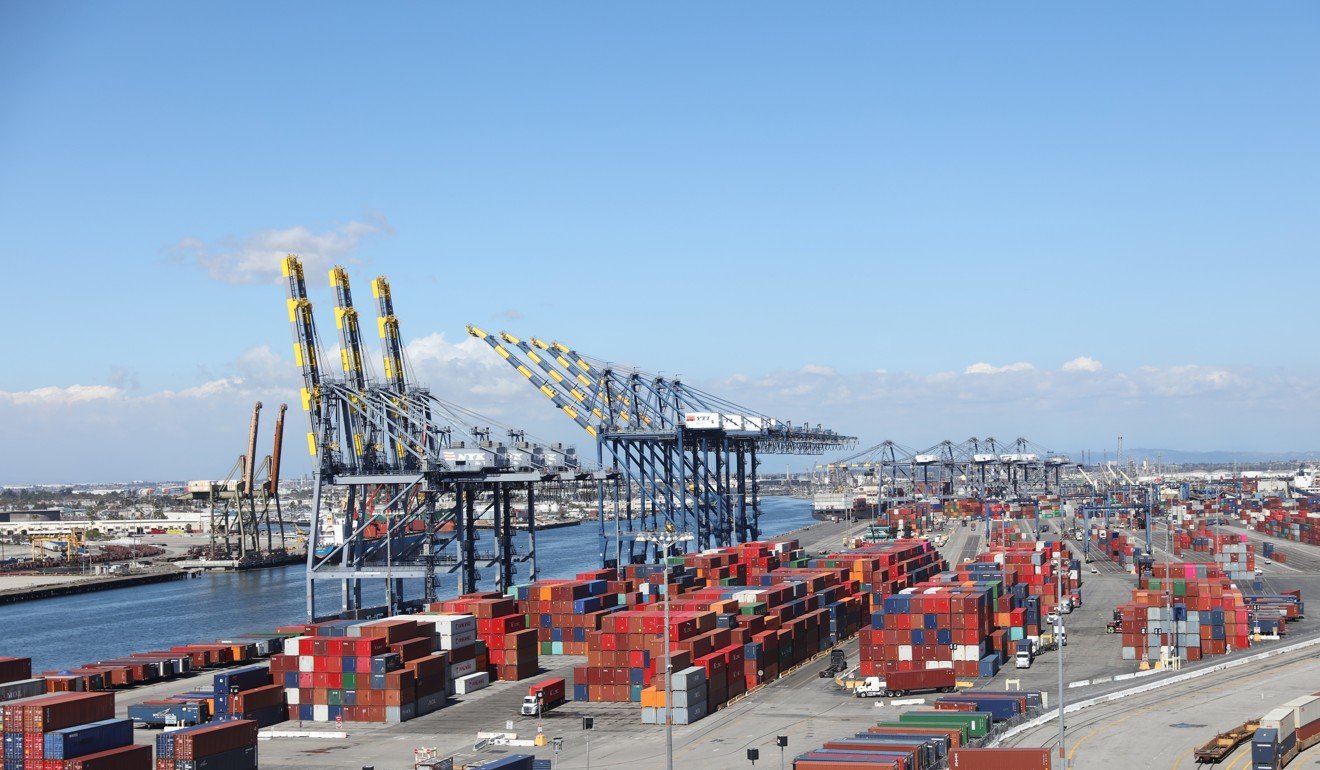
Trump tries to enlist French and German support over China trade disputes
White House says US president talked to two nations’ leaders about countering Beijing’s ‘unfair trade practices’ as the threat of China-US trade war looms
The United States is trying to rally its allies to counter China’s alleged unfair trade practices – raising the risk of a protracted confrontation.
But experts said US President Donald Trump may not be able to present a united front with America’s allies because of their diverging interests.
Trump and German Chancellor Angela Merkel “discussed joining forces to counter China’s unfair economic practices and illegal acquisition of intellectual property”, the White House said in a statement on Tuesday.
In a separate call with French President Emmanuel Macron, Trump also discussed the “next steps” in dealing with China’s “unfair trade practices”, the White House added.
“The two leaders also discussed trade practices between the United States and European Union,” according to a statement.
The calls comes as Washington and the European Union are at loggerheads over Trump’s decision earlier this month to slap steep tariffs on steel and aluminium imports.
Trump is waging simultaneous trade battles with Beijing and Brussels, having also announced tariffs of up to US$60 billion on Chinese imports.
European and American trade officials have said talks are underway to reach a compromise and the United States has temporarily exempted Europe from the tariffs of 10 per cent on aluminium and 25 per cent on steel.

But Brussels has identified US goods – ranging from peanut butter to Harley-Davidson motorcycles – which could be subject to painful import duties if the compromise efforts fail.
European officials have said the US tariffs do not address the common problem of industrial overcapacity and market glut, for which Washington blames Beijing.
Wang Yiwei, a European studies expert at Beijing’s Renmin University, said Trump was using divide-and-rule tactics.
“In such a big issue as a trade war, the EU would probably have to side with the US.”
Apart from the prospect of an exemption from the US metal tariffs providing an incentive to side with the US, Europe has its own complaints about China’s trade policies. These include issues such as market access, the use of government subsidies, the role of state-owned enterprises and alleged intellectual property right violations.
Cui Hongjian, the head of European studies at the China Institute of International Studies, argued that the EU’s efforts to avoid steel and aluminium tariffs were “disappointing” and contradicted its commitment to free trade and multilateralism.
“The EU seems to be trying to escape harm and redirect the American sanctions to China,” he said. “But sacrificing China will not save Europe,” Cui added.
“In the face of Trump’s unilateralism, appeasement will only result in being targeted and defeated one by one.”

Japan, another US ally, has not been exempted from the steel and aluminium tariffs, but it has decided to slap extra duties on Chinese steel imports – raising speculation it will also take sides in any trade war.
Liu Jiangyong, a Japan expert from Tsinghua University said it would be very unwise for Japan to side with the US as it has large trade surplus with China, and some Japanese hi-tech products are competing with America’s in the Chinese market.
Liu argued it was too early to say what Japan would do. “There are still lots of uncertainties about where Trump’s trade battle with China will go. If Japan acts too soon it could end in embarrassment and put China-Japan relations at risk.”
Other US allies, such as South Korea and some Southeast Asian countries, are also thought be unlikely to take part in a trade war, as these smaller economies have experience of balancing the competing demands of the two great regional great powers.
“Asean countries could actually benefit during a US-China conflict, but they are probably not being pressured by America to do anything and they will not want to irritate China” said Zhang Mingliang, from Jinan University in Guangzhou.
Additional reporting by Agence France Presse

